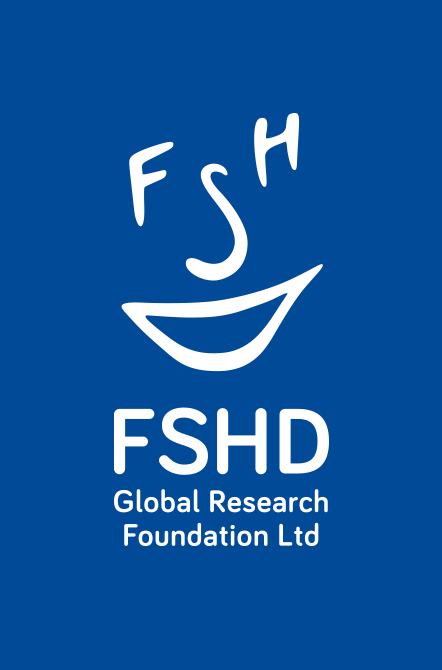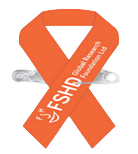GRANT 33
Research Institution: Facio Therapies
Principle Investigator: Facio Therapies
Type: International
Project title: “Facio Therapies Biotech Investment Grant”
Status: Active
Summary
FSHD is most commonly diagnosed in teenage or early adults, and, while not fatal, the disease is both progressive and debilitating, eventually resulting in complete immobility in many people. FSHD has a relatively high incidence, affecting one in 8,000 people. No treatment or cure is currently available for the disease.
During the last couple of years, it has become evident that FSHD is caused by changes in a network of control systems that can turn on ‘good’ genes and switch off ‘bad’ genes. Not all of our genes need to be active all the time so they need to be activated or silenced, in the right tissue, at the right moment. Epigenetics refers to this process in which chemical modifications on the DNA or on proteins around the genes will turn those genes on or off over time, without altering the gene sequence itself. In FSHD patients, specific defects in the epigenetic system turns on a gene that is normally switched off in muscle. This gene contains the recipe to create a toxic protein, DUX4, which causes muscle wasting.
In healthy people, an epigenetic protein called SMCHD1 contributes to the silencing of the DUX4 gene, thus preventing the creation of the DUX4 protein. Facio Therapies aims to discover small molecules that increase the activity of SMCHD1 to lock the DUX4 gene in the closed position. They plan to first develop a test system using muscle cells from FSHD patients, which can measure activity of SMCHD1 and DUX4. They will then check that the system is robust enough to allow screening of thousands of chemical compounds that ultimately prevent the creation of the toxic DUX4 protein in muscle cells. The molecules identified in this process will then undergo extensive further testing to produce molecules that can be evaluated as potential treatments for FSHD.
PROGRESS REPORTS
Update September 2016
FSHD Unlimited, the parent company of both Facio Therapies and Facio Intellectual Property, has published its first audited Annual Report, which covers the period of September 2014 (inception) through December 2015. Having raised €2,475,000 in equity, the Facio group of companies ended the report period with €1,428,593 in cash and cash equivalents. Expenses were mainly directed at Facio’s drug discovery program towards a therapy for FSHD. The first result of that program – an initial series of candidate therapeutic compounds – is expected to become available before the end of 2016.
Together with German-based Evotec, and with the support of Leiden University Medical Center (Netherlands) and University of Rochester Medical Center (USA), Facio started its drug discovery program in June 2015. The aim is to identify small-molecule compounds able to take the DUX4 gene, which in FSHD is responsible for production of the toxic DUX4 protein, back to the repressed state seen in people without FSHD. Importantly, measuring DUX4 protein levels in patient-derived muscle cells captures the natural biological complexity of FSHD. In the second half of 2015, Facio fully focused on thoroughly characterizing FSHD-affected muscle cell lines and on defining the conditions that enable testing thousands of compounds. Facio expects to obtain an initial series of compounds with the desired effect before the end of 2016. Immediately thereafter, Facio will investigate their mode of action in FSHD and conduct extensive further testing towards so-called lead compounds suitable for development into a human therapeutic.
“Research has shown that DUX4 expression in FSHD is highly sporadic and limited to a small fraction of muscle cell nuclei”, noted Kees van der Graaf, Chairman of FSHD Unlimited. “Therefore, reliably measuring DUX4 protein in FSHD-affected muscle cells to enable testing thousands of compounds in an automated process is a tremendous technical challenge. We believe that meeting this challenge represents a major advancement beyond the state of the art. Moreover, generating the initial series of candidate therapeutics would mean a major step towards a disease-modifying therapy in less than 18 months.”
Facio actively pursues alignment with the FSHD community. The €2,475,000 raised in equity during the report period includes €2M from leading community members, Kees van der Graaf and Bill Moss AO, as well as €475,000 from the FSHD Global Research Foundation (Australia) and private investors. In early 2016, the FSHD Stichting (Netherlands) provided a €100,000 convertible loan.
“We are very grateful for the support from the FSHD community”, commented Kees van der Graaf. “While our cash position at year-end 2015 is sufficient to fund our operations for at least the year 2016, we are pleased to note growing interest from parties both within and outside the community in financially supporting our program.”
Full annual report is available from: http://www.facio-therapies.com/news/ar-2014-2015
Update February 2017
Arising from the FSHD community, Facio is translating breakthrough results of 25 years of basic research into a therapy that stops the progressive muscle wasting caused by FSHD. That is Facio’s product mission. Facio also aims to make it’s therapy widely available by using a transparent model for fair and reimbursable pricing. That way, Facio aims to generate sustainable profits to fund additional quality-of-life projects for people with FSHD and to provide liquidity to its shareholders. That is Facio’s socio-economic mission.
Facio Therapies announced at the end of December that it has screened approximately 34,000 compounds for their ability to repress the production of the muscle-toxic DUX4 protein in cultured muscle cells derived from FSHD patient biopsies. As planned, a variety of compounds with the desired effect (known as “hits”) have been identified.
In September 2016, Facio announced that, together with its drug discovery partner, German-based Evotec, it had established the first-ever screening platform that enables reliable quantification of naturally occurring DUX4 protein in cultured FSHD-affected muscle cells. Undue production of DUX4 is the cause of FSHD. When produced in muscle tissue, DUX4 is highly toxic due to a cascade of events eventually resulting in the devastating effects of FSHD. In people without FSHD, the production of DUX4 is repressed by regulatory mechanisms in the muscle cell. Facio’s single goal is to pursue a therapy that restores this repression as much as possible.
“This is the very first large scale FSHD screening campaign on record that quantifies the naturally occurring DUX4 in patient derived skeletal muscle cells”, noted David Dasberg, Facio’s Managing Director. He added: “Hits are the foundation for the development of our FSHD drug candidates, so we have to be very thorough. That’s why we are now subjecting all our hits to a battery of additional tests to weed out false positives. We look forward to completing this process in the months ahead.”




